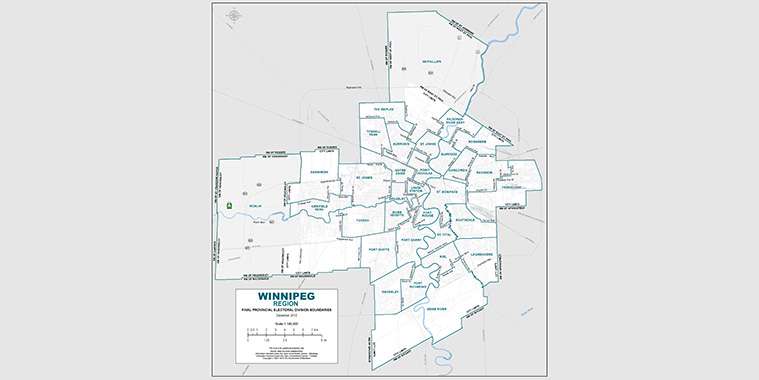By Michael Juce
With the Premier electing to kick off an early election campaign August 12, Manitoba’s 42nd general election has been off to a roaring start. Both the PCs and the NDP have a full slate of 57 candidates ready for the September 10 election, with both the Liberals and Greens hoping to do the same with the August 26 deadline to become a nominated candidate.
In addition to having candidates in place, parties have been busy with their platforms. Political party platforms are a series of goals or commitments each party makes during a campaign to garner voters support and attention. Home ownership and related aspects have been featured in each campaign to varying degrees so far:
PC: Thus far, their campaign commitments have mostly focused on those who already own a home. Prior to the campaign kicking off, they committed to removing the PST from home insurance, which would save the average household $70 a year. During the campaign, they announced they would spend $25 million annually on energy efficiency retrofits of existing homes and commercial buildings. The funds would make insulation, efficient windows and doors and modern appliances more affordable through a rebate-style mechanism to offset costs. These funds would be managed and delivered by Efficiency Manitoba, the province’s newest Crown Corporation.
NDP: Their first tax commitment of the campaign focused on helping those looking to get into their first home. The NDP plan would offer $1,000 in Land Transfer Tax relief for first-time home buyers and people with disabilities. With the average homebuyer paying around $3,700 in Land Transfer Tax, this would save over a quarter of the amount in most cases. This tax measure would help about 8,000 homebuyers a year.
Liberal: Have also made energy efficiency a priority, but have taken a slightly different approach. Their platform includes cancelling Efficiency Manitoba, and bringing back PowerSmart programming. They would encourage the purchase and use of more energy efficient appliances, CFL and LED lights, as well as smart thermostats. A combination of tax incentives and direct grants would be introduced for insulation retrofits, and they’d look to lower energy bills and usage for all families and businesses. No dollar figures have been attached to the Liberal commitment to date on how generous those incentives have been.
Green: On the tax side, they have pledged to fund education only through corporate and personal income taxes, instead of the current system that partly relies on property taxes. They would also bring in incentive programs to ensure buildings are properly insulated. They’d halt the expansion of natural gas services for residential heating, and instead explore alternative renewable options to natural gas heating, such as geothermal and electric. Lastly, they’d look to change the building code to ensure that all new buildings meet super-efficiency insulation standards and feature small-scale renewable micro-generators. No cost estimates have been provided to date for these proposed changes.
As of print time, this is where all parties stand at a high-level regarding their platforms and home ownership. The Manitoba Real Estate Association (MREA) will continue to push for home ownership throughout the campaign, and for reform in areas such as education financing. Education property taxes are the only tax that varies on where you live in the province, and while change will be difficult, a standard mill rate would create a simpler and fairer tax system. In addition, over 60% of Manitobans support moving to a single mill rate according to a poll done by Probe
Research, which was commissioned by MREA and WinnipegREALTORS®.
Of course, economic growth also supports the housing market. This is why MREA has partnered with nine other leading business organizations in Manitoba to produce seven pillars, a platform that urges parties to focus on, and support, what drives economic growth in Manitoba. The pillars are:
1. A common economic agenda
2. Infrastructure investment
3. Global trade
4. Indigenous engagement
5. Producing attracting and retaining talent
6. Access to capital
7. Establish strong and sustainable fiscal relationships
With advance polls opening August 29, it is expected that parties will keep making announcements up until around then before narrowing down and focusing on their platforms and their opponents the last week of the campaign. Also make sure you are aware of who you are voting for as the riding boundaries have changed for this election. All but one of the ridings have had their boundaries changed, and 14 have new names. Visit Elections Manitoba for more information on that front. Most importantly though, make sure you go out and vote!
Michael Juce is Manitoba Real Estate Association Director of Policy.



